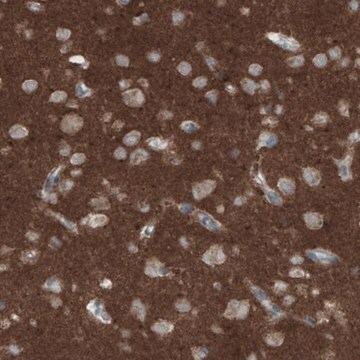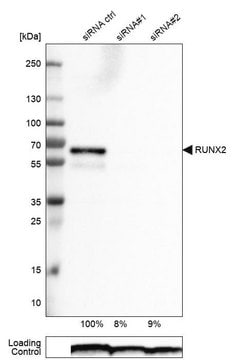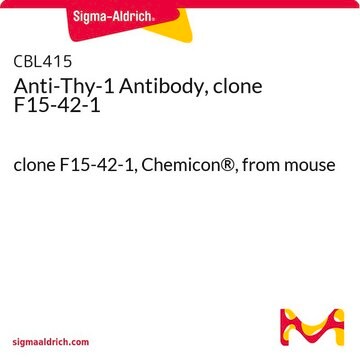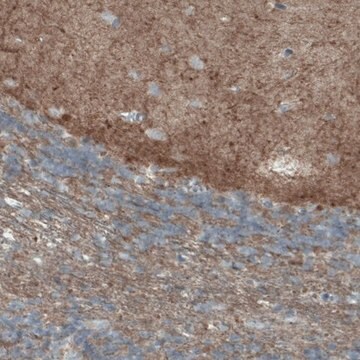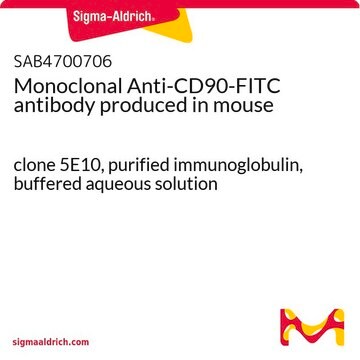SAB4200497
Anti-THY1 antibody, Mouse monoclonal
clone TH350, purified from hybridoma cell culture
Sinonimo/i:
Anti-CD90, Anti-CDw90, Anti-FLJ33325, Anti-Thy-1 T-cell antigen, Anti-Thy-1 antigen, Anti-Thy-1 cell surface antigen, Anti-thy-1 membrane glycoprotein, Monoclonal Anti-THY1 antibody produced in mouse
About This Item
Prodotti consigliati
Origine biologica
mouse
Coniugato
unconjugated
Forma dell’anticorpo
purified from hybridoma cell culture
Tipo di anticorpo
primary antibodies
Clone
TH350, monoclonal
Forma fisica
buffered aqueous solution
PM
antigen ~27 kDa
Reattività contro le specie
mouse, human, rat
Concentrazione
~1.0 mg/mL
tecniche
ELISA: suitable
flow cytometry: 20-40 μg/test using A549 cells.
immunohistochemistry: suitable
western blot: 2.0-4.0 μg/mL using NT2 total cell extracts.
N° accesso UniProt
Condizioni di spedizione
dry ice
Temperatura di conservazione
−20°C
modifica post-traduzionali bersaglio
unmodified
Informazioni sul gene
human ... THY1(7070)
Descrizione generale
Thy-1 cell surface antigen (THY1) is a glycoprotein that is expressed on the membranes of adult cells, mesenchymal stromal cells and cancer cells. It has a molecular weight of about 25-37kDa. The gene encoding THY1 is localized on human chromosome 11q23.3.
Specificità
Immunogeno
Applicazioni
- immunoblotting
- flow cytometry
- immunofluorescence
Azioni biochim/fisiol
Stato fisico
Stoccaggio e stabilità
Esclusione di responsabilità
Not finding the right product?
Try our Motore di ricerca dei prodotti.
Codice della classe di stoccaggio
10 - Combustible liquids
Classe di pericolosità dell'acqua (WGK)
WGK 2
Punto d’infiammabilità (°F)
Not applicable
Punto d’infiammabilità (°C)
Not applicable
Certificati d'analisi (COA)
Cerca il Certificati d'analisi (COA) digitando il numero di lotto/batch corrispondente. I numeri di lotto o di batch sono stampati sull'etichetta dei prodotti dopo la parola ‘Lotto’ o ‘Batch’.
Possiedi già questo prodotto?
I documenti relativi ai prodotti acquistati recentemente sono disponibili nell’Archivio dei documenti.
Il team dei nostri ricercatori vanta grande esperienza in tutte le aree della ricerca quali Life Science, scienza dei materiali, sintesi chimica, cromatografia, discipline analitiche, ecc..
Contatta l'Assistenza Tecnica.
